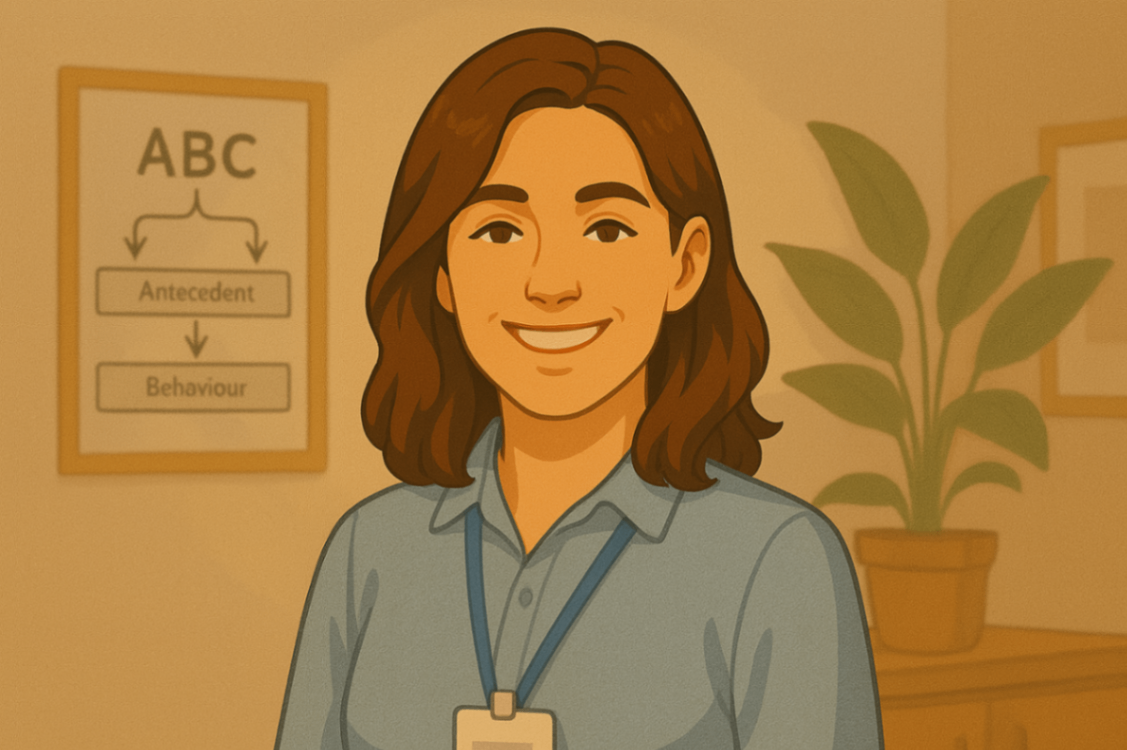
how to become a positive behaviour support practitioner in australia
8 July, 2025
Becoming a PBS Practitioner in Australia
Positive Behaviour Support (PBS) is an evidence-based approach that helps individuals with behaviours of concern live more independent, safe, and fulfilling lives. Becoming a PBS Practitioner in Australia—particularly within the NDIS Behaviour Support framework—requires specific training, qualifications, and adherence to ethical practice standards.
This guide outlines how to enter the field, meet the requirements of the PBS Capability Framework, and begin a career that makes a meaningful difference in people’s lives.
Key Highlights
-
Learn the qualifications and steps to become a Positive Behaviour Support (PBS) Practitioner in Australia.
-
Understand how the PBS Capability Framework outlines practitioner levels and professional growth.
-
Explore the four NDIS practitioner levels: Core, Proficient, Advanced, and Specialist.
-
Know the difference between PBS Practitioners and Behaviour Therapists under NDIS guidelines.
-
Discover how to register with the NDIS Quality and Safeguards Commission and meet national practice standards.
What Is an NDIS-Registered Positive Behaviour Support Practitioner?
 A Positive Behaviour Support Practitioner is a trained professional who works with individuals experiencing behaviours of concern. Their role includes conducting assessments, developing person-centred behaviour support plans, and working collaboratively with families, schools, and support staff. These practitioners help reduce restrictive practices and improve quality of life by promoting autonomy, communication skills, and emotional regulation—core principles of the NDIS behaviour support model. If you're new to PBS and want to understand the core principles behind this approach, here’s an overview of what Positive Behaviour Support means and how it works under the NDIS.
A Positive Behaviour Support Practitioner is a trained professional who works with individuals experiencing behaviours of concern. Their role includes conducting assessments, developing person-centred behaviour support plans, and working collaboratively with families, schools, and support staff. These practitioners help reduce restrictive practices and improve quality of life by promoting autonomy, communication skills, and emotional regulation—core principles of the NDIS behaviour support model. If you're new to PBS and want to understand the core principles behind this approach, here’s an overview of what Positive Behaviour Support means and how it works under the NDIS.
Defining Positive Behaviour Support
Positive Behaviour Support is a way of helping with tough behaviours that puts human rights and quality of life at the center. It starts by trying to understand why someone acts in a certain way. These actions often show what unmet needs a person might have. This helps people plan real ways to support positive change.
The process uses teamwork. Families, carers, and support teams work together. They plan the right support for what each person needs, like making changes to the surroundings and helping a person grow better communication skills. The main idea is to use support services to build more positive behaviour. This makes the person feel stronger and more able to do well.
Through teaching new skills, positive behaviour support can help people see real, lasting improvements. It lets the person’s world match who they are and helps them grow. Behaviour support works together with methods that look at the whole person, so every part of their well-being is taken care of. This sets things up for real, positive change that lasts.
The Role and Purpose in NDIS Behaviour Support
Within the NDIS Behaviour Support framework, Positive Behaviour Support Practitioners have important jobs. They develop behaviour support plans and carry out assessments like Functional Behaviour Assessments. Their work is to find out what causes certain behaviours and to put positive behaviour support strategies in place to help.
Support workers and families are key partners in this work. Practitioners join with them to make sure the NDIS Plan has solutions that put the person at the center. The goal is not just to help manage challenging behaviour, but also to make positive changes to improve quality of life.
A big part of Positive Behaviour Support with the NDIS is to reduce the use of restrictive practices. Practitioners try to find and meet unmet needs early on. This way, they help remove things that get in the way of independence and make life better for people. Everything they do fits with the NDIS policies that focus on keeping people's dignity and rights safe.
What Qualifications Do You Need to Become a PBS Practitioner?
 To become someone who gives behaviour support or works as a Positive Behaviour Support (PBS) practitioner, you usually need to have a qualification in a related area. This can be a degree in psychology, social work, or education. You also have to do special training in positive behaviour and PBS frameworks. This training will help you to learn the best ways to support people if they have behaviours that are hard to manage.
To become someone who gives behaviour support or works as a Positive Behaviour Support (PBS) practitioner, you usually need to have a qualification in a related area. This can be a degree in psychology, social work, or education. You also have to do special training in positive behaviour and PBS frameworks. This training will help you to learn the best ways to support people if they have behaviours that are hard to manage.
What you would typically need:
-
A degree in a relevant field (e.g. Psychology, Social Work, Speech Pathology, Occupational Therapy, Education)
-
Experience working with individuals with disability or complex behaviour needs
-
Formal training in Positive Behaviour Support strategies and assessment techniques
You must also meet the criteria set by the PBS Capability Framework, complete a self-assessment, and be linked to an NDIS-registered behaviour support provider or apply for individual registration through the NDIS Commission.
Before becoming a PBS Practitioner, it's essential to understand how to conduct assessments. Here’s a step-by-step look at the Functional Behaviour Assessment process used in behaviour support plans.
NDIS Requirements for Behaviour Support
NDIS has set clear rules for people who want to be recognised by its commission. Here are the main things you need to do:
-
Adherence to the PBS Capability Framework: You must finish a self-check to show you meet the PBS capability framework standards.
-
Training and Evaluation: You must have behaviour support training in positive behaviour. You also need to know how to assess behaviour well. Both help in the assessment process.
-
Registration with the NDIS Commission: You need to either work with a registered NDIS provider or apply by yourself as an individual provider.
The NDIS Safeguards Commission says that following rules about reducing restrictive practices is a must. It wants good and fair ways to help people with positive behaviour and support. When you meet all these requirements, you can then offer new and strong plans that match top standards in your work.
Understanding the PBS Capability Framework
 The PBS Capability Framework is a key guide for Behaviour Support Practitioners in Australia. It looks at practitioner levels and ways of working. It pushes for growth and keeps the quality of support services high.
The PBS Capability Framework is a key guide for Behaviour Support Practitioners in Australia. It looks at practitioner levels and ways of working. It pushes for growth and keeps the quality of support services high.
This framework judges skill, and it shows what steps to take to be a specialist behaviour support provider. It sets clear rules for how to keep learning and helping people in the right way. This keeps everything ethical within the pbs capability framework. If you are a practitioner, you must use this framework. This helps to make sure that all support services you give are of good quality. Working with children who have complex needs often requires higher practitioner levels.
What Is the PBS Capability Framework?
The PBS Capability Framework shows the main skills and knowledge you need for behaviour support. It focuses on learning why people act in certain ways. It is about using good plans to help people show more positive behaviour. This framework also asks you to check how well these plans work, so you see positive change in people’s lives. Another important part is working with other people, like families and teams. By using the PBS Capability Framework, positive behaviour support workers can make a real difference for everyone involved.
How It Guides Practitioner Levels and Responsibilities
The PBS Capability Framework lays out the roles and jobs of every practitioner at four different levels:
|
Practitioner Level |
Responsibilities |
|---|---|
|
Core Practitioner |
Do basic behaviour checks, help make behaviour support plans, work under someone’s guidance. |
|
Proficient Practitioner |
Do behaviour assessments alone, create full behaviour support plans, and use restrictive actions when needed. |
|
Advanced Practitioner |
Help teach newer practitioners, lead special interventions, and come up with support plans that fit each person, using full frameworks. |
|
Specialist Practitioner |
Handle tough situations with complex cases, create new ways to manage tricky behaviours, and help shape policy and direction. |
Each level is there to show what kind of skills and ethical standards are needed. It helps make sure people get support services that are clear and accurate through the PBS Capability Framework.
How Do You Become Eligible to Deliver PBS Under the NDIS?
To give PBS under the NDIS, practitioners need to pass the NDIS Commission’s suitability check. They must finish the PBS Capability Framework self-assessment and upload a portfolio of evidence that shows their skills.
If you are new and do not yet have much experience, there are other ways to qualify. These routes focus on getting help from mentors and providing a smaller portfolio of evidence. You must also have a current NDIS worker screening clearance number before you apply.
People who get approved by the NDIS Commission can then make behaviour support assessments and plans. These must meet high-quality standards.
What Are the 4 Levels of PBS Practitioners in Australia?
PBS Practitioners in Australia are put into four groups based on what they can do, using the PBS Capability Framework. The groups are called Core, Proficient, Advanced, and Specialist.
Each group shows what someone can do, from just starting and needing help with easier PBS work, all the way to doing hard behaviour checks alone. Specialist Practitioners work on tough cases. They use new, evidence-based ways to help. This group system helps create support plans that fit different people and helps all practitioners grow in their work.
When practitioners match what they can do to what the PBS Capability Framework asks for, they can make good support plans and strategies for the people they help. This makes sure everyone gets the support that meets their needs. “As you progress into independent practice, you’ll be expected to create high-quality plans. Learn how to structure an effective NDIS Behaviour Support Plan that aligns with compliance requirements.
Final Tips: Starting Your Career as a PBS Practitioner
Starting as a PBS Practitioner can feel good and be hard at the same time. Here are some tips to help you:
-
Build your skills: Take PBS training and join workshops. This is a good way to get stronger with your skills.
-
Develop networks: Get to know mentors and work with support coordinators. This can help you to get better in your job.
-
Focus on impact: Work for positive change. Use behaviour plans built just for each person’s individual needs.
-
Stay committed: Do your work in areas you know well. This helps to earn trust and follow the right standards.
When you have people around you who are skilled and ready to help, you can handle problems better. This support makes it easier to bring positive change for those in the disability sector.
Conclusion
To sum up, becoming a Positive Behaviour Support Practitioner in Australia can be a good job choice if you want to help people with disabilities. You need to learn about the qualifications, the frameworks, and the roles that are a part of positive behaviour support. Knowing about all this lets you move through the NDIS requirements in the right way. It is important to have the right background and work experience, and it helps a lot if you match your skills to the PBS Capability Framework. When you feel ready for the next step, look for resources and support that can help you begin your career as a behaviour support practitioner. Don’t wait to ask for help when you start out on this path—there are people who can guide you as you grow as a practitioner in positive behaviour support.
Frequently Asked Questions
What qualifications do I need to be a Positive Behaviour Support practitioner in Australia?
To be a Positive Behaviour Support (PBS) Practitioner in Australia, you usually need a degree in psychology, social work, or education. You should also get extra training in positive behaviour support frameworks. It is important to have experience working with people who have disabilities. This helps you understand and give good behaviour support.
What is the PBS Capability Framework and why does it matter?
The PBS Capability Framework helps set the skills and knowledge needed by people who give NDIS behaviour support. It gives clear steps and rules for their work. This helps make sure their support is good, caring, and right for each person. The framework also pushes for better training, so all those who work in behaviour support can grow in their jobs. Using the PBS Capability Framework helps make behaviour support more reliable, fair, and focused on every person's needs.
Do I need to register with the NDIS Quality and Safeguards Commission?
Yes, PBS Practitioners need to sign up with the NDIS Quality and Safeguards Commission. This shows that they follow the standards set by the PBS Capability Framework and the rules from the NDIS. It also means they use and watch over restricted practices in behaviour support in the right way.
What is the difference between a PBS Practitioner and a Behaviour Therapist?
A PBS practitioner works on putting positive behaviour support plans in place. These are made to fit each person and help them in their daily life. A behaviour therapist tries to find and treat different behaviour problems. They often use many kinds of therapy methods. Both people want to help and make the quality of life better. But, the way they work and what they know can be very different.
What support is available for new PBS practitioners in Australia?
Support for new PBS Practitioners comes from mentorship, training programs, and networks that are there through registered NDIS providers and coordinators. These things help you do good work in the way you give help with behaviour support. This support makes it easier for you to give strong and helpful interventions to people who need them.
.svg)

















